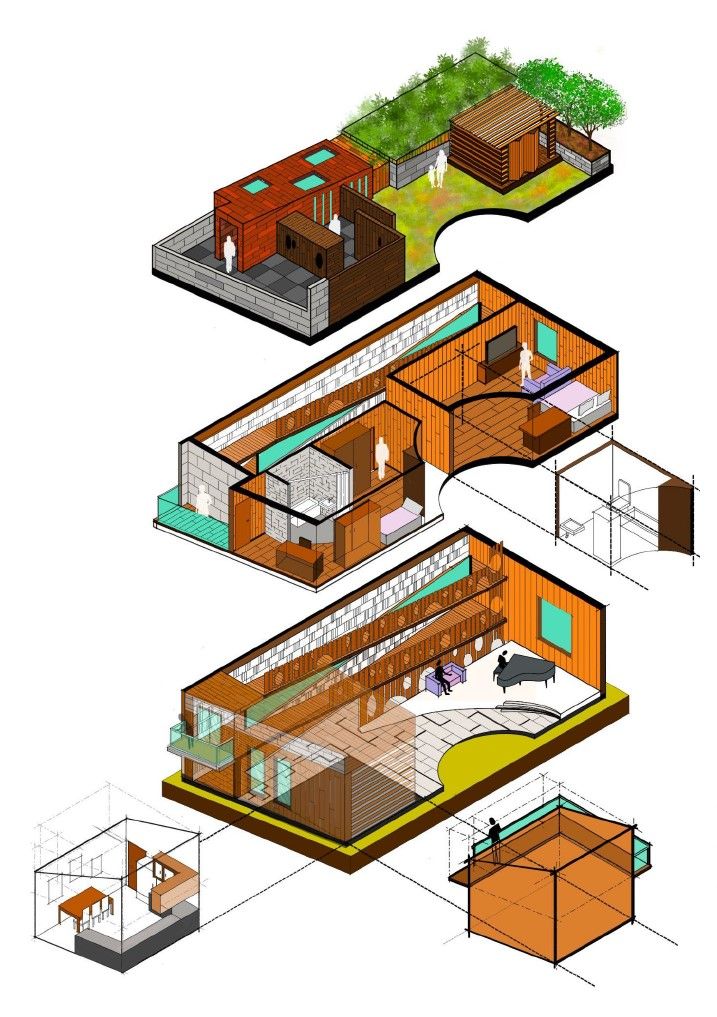Course Overview
Architecture is a course offered by the innovative collaboration between two universities - The University of Manchester and Manchester Metropolitan University - forming the internationally renowned Manchester School of Architecture.
You will become a student at both universities and your BA(Hons) Architecture degree certificate will be endorsed by both institutions. The Foundation course provides you with an ideal transition between School and University or as part of a career change if you wish to study architecture but do not hold the formal entry requirements to enter an honours programme directly.
The Foundation course will provide an accessible transition to University-level study, help you develop design portfolios and provide insight into architecture as a career path. You will benefit from the expertise of specialist practitioners and lecturers who provide you with a supportive environment to develop the fundamental skills needed to embark on a career in the field. The foundation programme will prepare you for undergraduate study in architecture at Manchester School of Architecture. We will help you develop your personal and academic skills, expose you to various communication and presentation techniques, show you how to understand and analyse project briefs and conceptualise design solutions, as well as giving you an insight into the practice of architecture.
The programme culminates in an architectural design studio project providing excellent preparation for learning at degree level.
You will be fully immersed into life at Manchester School of Architecture; working with fellow students when the opportunities arise and culminating your studies with a design studio project which relates to those undertaken by current students.
What's more, you'll be inspired by the world-famous city of Manchester - the industrial revolution birthplace turned 21st century metropolis - and its vibrant, contemporary and innovative architecture scene.
Manchester is a showcase for recent regeneration and historic context, much of which has been designed with the involvement of our current students and graduates. The city recognises the value of high-quality design, together with innovative and pragmatic approaches to resolving practical issues.
Please note that students successfully completing the Foundation Year course will be awarded a place on the Manchester School of Architecture BA (Hons) Architecture programme.
You will be introduced to learning at Higher Education through a series of supported activities and workshops. Project-based learning is the basis of architecture education, and the studio is where this learning takes place. From the very start you will be involved in a variety of projects which will enable you to understand and develop a design process. You will work alongside peers and develop projects through workshops, debate and discussion.
Friendly tutors will support the development of visual and digital skills and provide regular feedback as well as providing discipline specific context. At the heart of the course is learning through hands on projects designed to develop your critical thinking and creativity. Invited guests from industry will also provide regular talks to increase your awareness of the wider profession.
Features
- We're ranked 5th in the world and 2nd in the UK for Architecture (QS 2025 World University Rankings by Subject).
- Our course is designed for promising students in the UK from a less represented background at university without the right entry qualifications who wish to train as an architect.
- Benefit from an ideal and accessible transition between School and University, or to support a change in career, you will gain expert support in developing design portfolios and first-hand insights into Architecture as a career path.
- Successful completion of the Foundation guarantees you a place on the BA (Hons) Architecture degree course at Manchester School of Architecture.
- Take advantage of facilities across two campuses, The University of Manchester and Manchester Metropolitan University, as you study at the innovative collaboration between the two - Manchester School of Architecture (MSA).
- Enjoy automatic and free membership of the MSSA, the UK's largest student society of architecture.
Duration
4 years (full-time)






